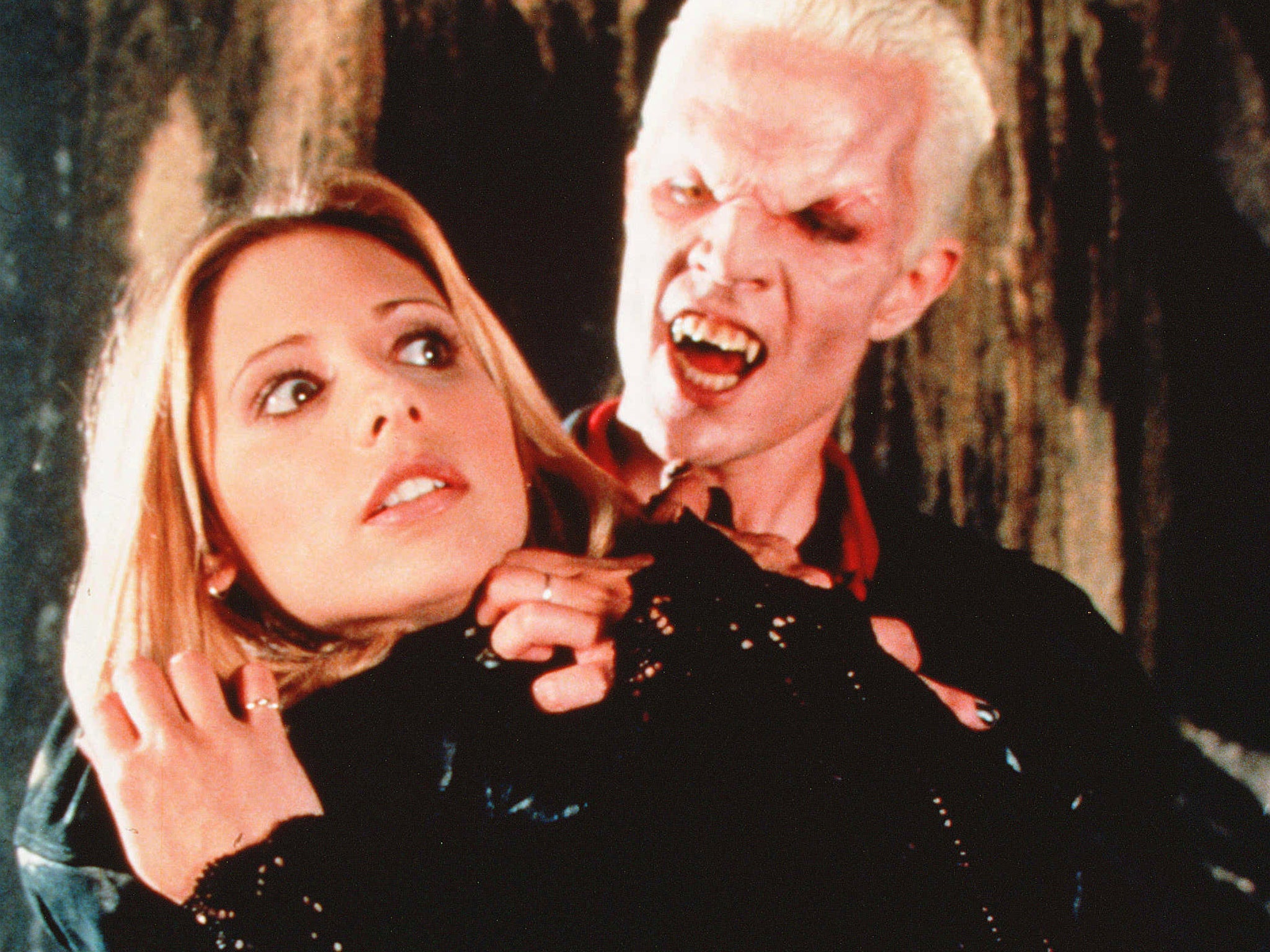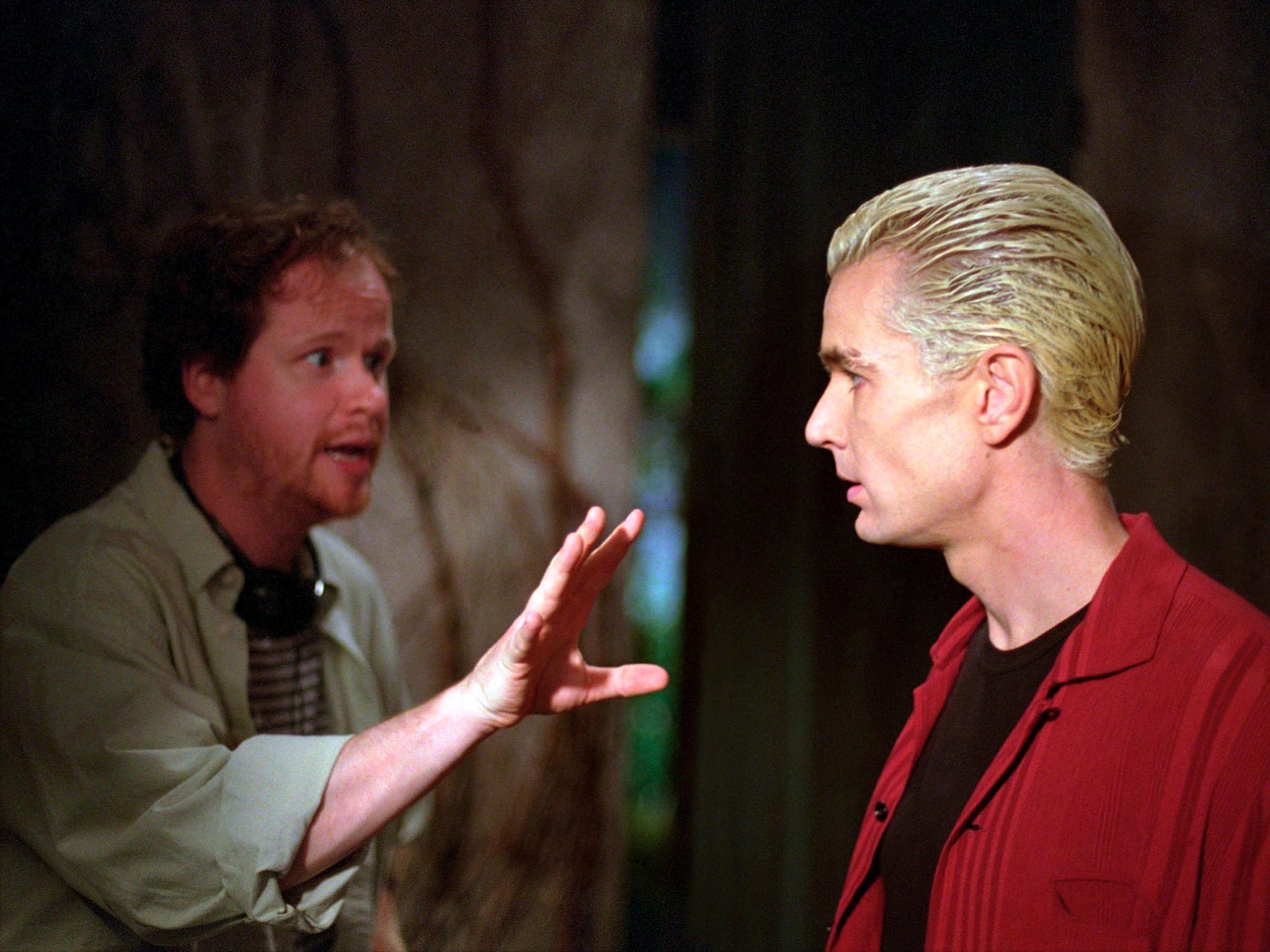James Marsters says he needed therapy after Buffy sexual assault scene
‘It’s the darkest professional day of my life,’ the actor said
James Marsters has revealed he sought mental health support after filming one harrowing scene for Buffy the Vampire Slayer.
The actor, 62, played the vampire Spike alongside Sarah Michelle Gellar as the titular slayer in Joss Whedon’s supernatural teen drama, which ran for seven seasons from 1997 to 2003.
In one episode from the penultimate series, “Seeing Red”, Spike tries to rape Buffy in her bathroom in a twisted attempt to prove his love for her – but she is able to fight him off.
Speaking to Michael Rosenbaum on the Inside of You podcast, Marsters said: “Buffy sent me into therapy, actually. Buffy crushed me.”
He added: “It’s a problematic scene for a lot of people who like the show. And it’s the darkest professional day of my life.”
Explaining how the distressing scene came to be, the Dragon Ball Super star said the writers “were being asked to come up with their worst day” and “slap metaphoric fangs” on it.
“One of the women writers actually had come up with this idea, because in college she had gotten broken up with and she went to her ex’s place and thought that if they made love one more time, everything would be fixed,” Marsters said.

“She kind of forced herself and he had to physically remove her from the premises, and that was one of the most painful memories of that time of her life.”
Marsters had questioned how the scene would be received by fans of the show having flipped the genders of the situation around.
“They thought that since Buffy was a superhero that they could flip the sexes, since Buffy could defend herself very, very easily from this,” he said.
“They thought that they could have a man do it to a woman and it would be the same thing,” the actor continued.

“I went to them and I said, ‘You know, guys, we’re providing a vicarious experience for the audience. Everyone who’s watching Buffy is Buffy, and they’re not superheroes, so I’m doing this to every member of the audience, and they’re going to have a very different reaction.’”
Marsters contractually “couldn’t say no” to filming the scene and described the shooting day as his “personal hell”.
“I don’t like sexual predation scenes, anything that has to do with it,” he explained.
“I don’t audition for those things. If there’s a movie with that kind of material, I don’t go to see the movie. If it pops up on television, I’ve got to turn the television off before I break it. I have a very visceral reaction to that stuff.”

Marsters previously told Radio Times another reason the writers had added the rape scene into the sixth season of Buffy was because they were struggling to make audiences see Spike as a villain.
“They couldn’t convince the audience to stop rooting for Spike,” he said. “They kept having me do worse and worse things trying to get people to realise. Even Spike at one point goes, ‘Hey guys, I’m evil.’ Because the audience refused to do that, they finally landed on that scene.”
Meanwhile, although Gellar has watched the majority of Buffy with her family, she revealed to The Hollywood Reporter last year that “Seeing Red” is one episode that she skips.
“I have trouble with [season] six,” she said. “It wasn’t appropriate for them at the time, and I just don’t want to rewatch it.”
Rape Crisis offers support for those affected by rape and sexual abuse. You can call them on 0808 802 9999 in England and Wales, 0808 801 0302 in Scotland, and 0800 0246 991 in Northern Ireland, or visit their website at www.rapecrisis.org.uk. If you are in the US, you can call Rainn on 800-656-HOPE (4673)
Join our commenting forum
Join thought-provoking conversations, follow other Independent readers and see their replies
Comments
Bookmark popover
Removed from bookmarks